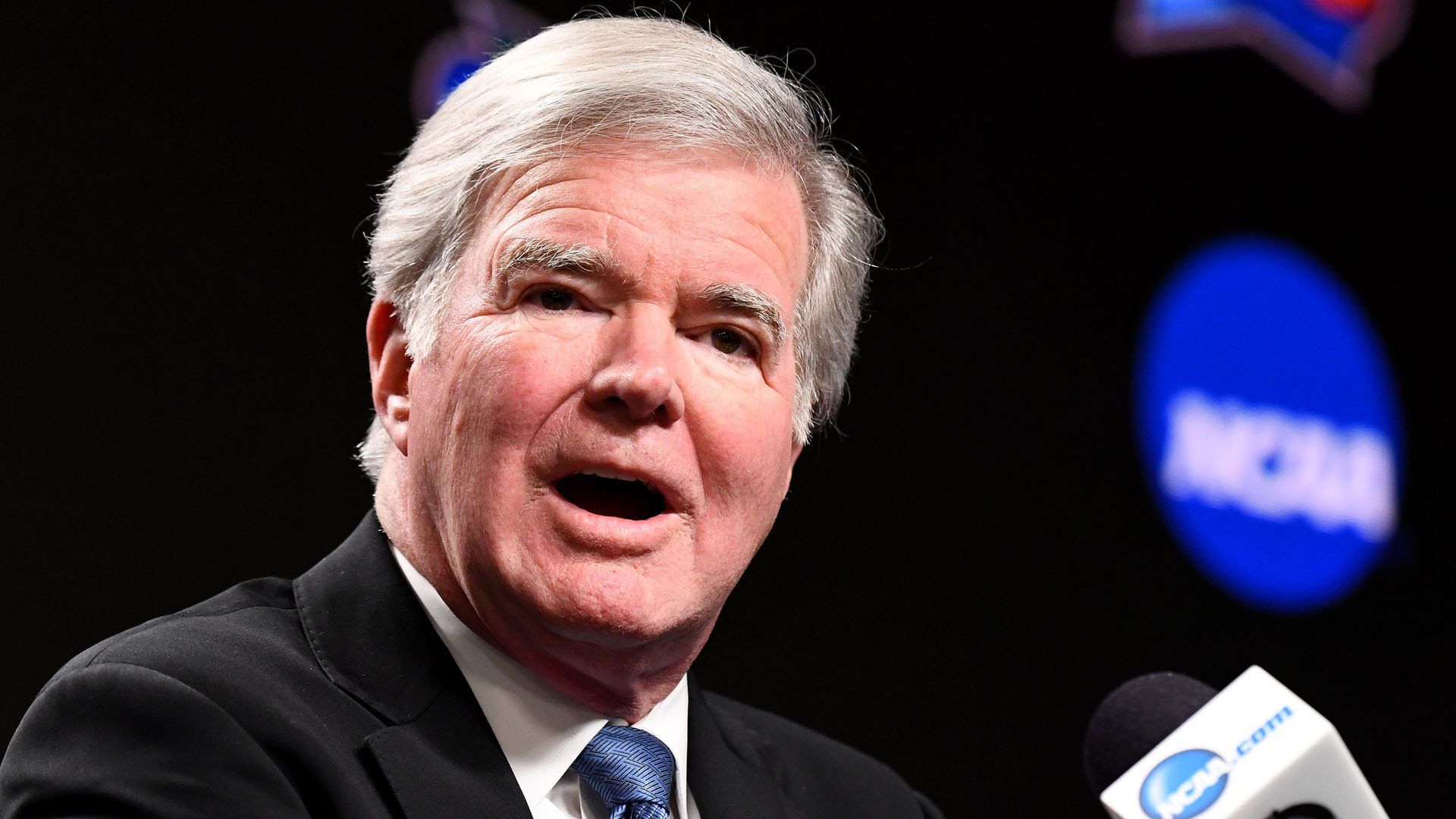Oct 3, 2019 - Sports
The NCAA makes rules, not laws
Add Axios as your preferred source to
see more of our stories on Google.

NCAA president Mark Emmert. Photo: Brett Wilhelm/NCAA Photos via Getty Images
Add Axios as your preferred source to
see more of our stories on Google.

NCAA president Mark Emmert. Photo: Brett Wilhelm/NCAA Photos via Getty Images